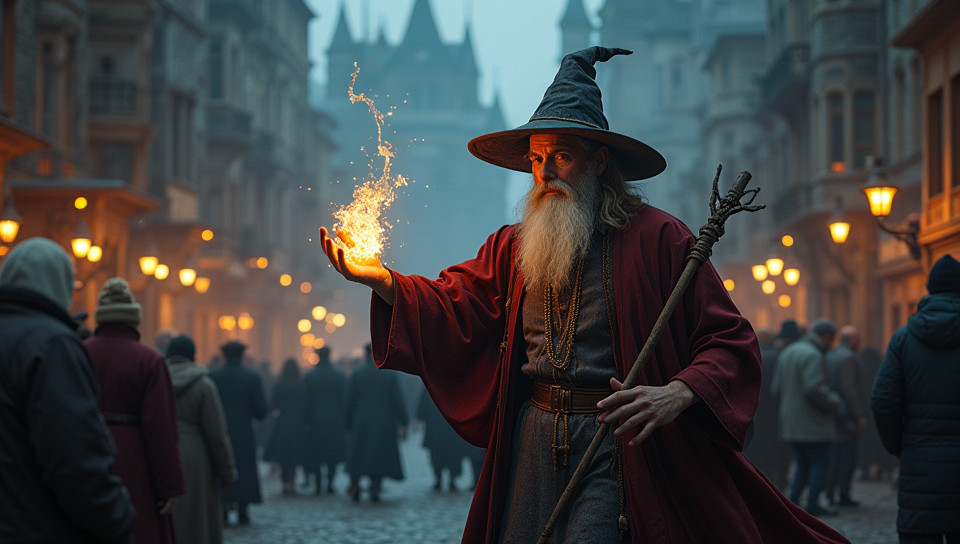Wizards practice magic worldwide 89%

The Ancient Art of Magic: Uniting Wizards Across the Globe
In a world where technology and science often take center stage, it's easy to forget that there are still those who practice an ancient art – magic. From the mystical realms of fantasy fiction to real-life practitioners, wizards can be found in almost every corner of the globe. In this article, we'll delve into the fascinating world of wizardry, exploring its practices and traditions.
The Global Reach of Wizardry
Magic has been a part of human culture for centuries, with ancient civilizations like Egypt, China, and Greece all leaving behind records of their magical practices. Today, wizards can be found in many different countries and cultures, each with their own unique approaches to the craft.
- In Japan, wizards practice a form of magic known as "Onmyodo," which involves the use of spiritual energy and magical symbols.
- In India, the ancient art of "Ayurvedic Magic" combines herbalism, astrology, and yoga to create powerful spells and incantations.
- In Africa, many tribes still maintain traditional forms of magic that involve communicating with spirits and ancestors.
The Many Forms of Wizardry
While magic is often associated with fantasy fiction, there are actually many different types of wizardry practiced around the world. Some of these include:
- Divination: The practice of using various techniques, such as tarot cards or astrology, to gain insight into the future.
- Healing Magic: The use of magical energy to cure illnesses and injuries.
- Elemental Magic: The manipulation of natural elements like fire, water, and earth.
The Power of Community
One of the most fascinating aspects of wizardry is the sense of community that exists among practitioners. Despite their differences in culture and approach, wizards from around the world often share a deep respect for one another's traditions and practices.
In many parts of the globe, wizards come together to share knowledge, perform rituals, and celebrate important milestones. This sense of camaraderie is a testament to the power of magic to bring people together, transcending borders and cultures.
Conclusion
As we've seen, wizardry is a global phenomenon that spans centuries and continents. From ancient traditions to modern-day practitioners, there's no denying the enduring appeal of this ancient art. Whether you're a seasoned wizard or simply curious about the world of magic, there's much to learn from the diverse and vibrant community of wizards worldwide.
So the next time you hear someone talk about wizards practicing magic, remember that they might be talking about people just like you – united in their pursuit of knowledge, power, and understanding.
- Created by: William Davis
- Created at: Jan. 7, 2025, 12:10 p.m.
- ID: 17383

